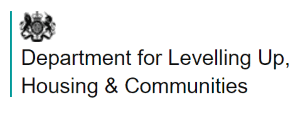 A new government service to hold building owners to account for remediation works has been launched.
A new government service to hold building owners to account for remediation works has been launched.
Under the new Leaseholder and Resident Service, those living in tower blocks will have access to updates on the status of their building’s application to the government’s Building Safety Fund. This will help leaseholders to understand where their building is in the process.
The tailored service is designed to speed up the process of removing unsafe non-ACM cladding from the highest risk buildings, forcing building owners to be more transparent, and exposing those who have failed to take action to make their buildings safe.
This is just one of a number of steps announced by the Secretary of State for Levelling Up, Housing and Communities this month to apply pressure on industry and protect leaseholders from unnecessary costs and delays.
Minister of State for Building Safety and Fire, Lord Greenhalgh, said: “It is unacceptable that four years after the Grenfell tragedy innocent leaseholders are still living in buildings with unsafe cladding.
“Building owners are responsible for making their building’s safe, and we will no longer allow them to shirk from their duties and hide behind processes and corporate loopholes.”
In his landmark Building Safety reset on 10 January, the Secretary of State announced that leaseholders would no longer pay for the fixing of unsafe cladding, with building owners and industry footing the bill instead.
While the majority of building owners are already engaged with the Building Safety Fund, a £5.1bn fund targeted at remediating unsafe non-ACM cladding on residential buildings 18m and over, a minority have yet to come forward and provide building information, leading to unnecessary delays and costs for innocent leaseholders.
Under this new service, a unique code will enable leaseholders and residents to track the progress of their building’s application through an online service, with information updated monthly. This will enable leaseholders to keep track of their building’s application and help apply pressure on their building owners if action is needed.
Leaseholders will receive a unique code from their building owners and are encouraged to contact owners if they do not receive their code, or if they have any further queries on the status of their building’s application. Many residents will also receive their codes directly from government.
To maintain the pace of building remediation and ensure the Building Safety Fund is further targeted at the highest risk buildings, the Secretary of State is currently reviewing the wider programme ahead of the next phase of funding, expected early this year.
Geeta Nand, G15 Chair and chief executive of MTVH, said: “Ensuring residents affected by building safety issues are kept up to date with information, including with regards to Building Safety Fund applications, is essential.
“G15 members have set up dedicated teams to support residents affected by building safety issues and provide regular updates on progress being made.
“We welcome the new Building Safety Fund online portal, which will help ensure that the information being provided to residents on this critical funding support is as accurate and up to date as possible.”
Kate Henderson, chief executive of the National Housing Federation, added: “Greater transparency over the progress of Building Safety Fund applications is a positive move, providing welcome information to residents in buildings across the country who have been living with uncertainty about their safety and their future.
“Housing associations are committed to working with the government to tackle the building safety crisis and support all efforts to protect leaseholders from costs.”


Comments are closed.